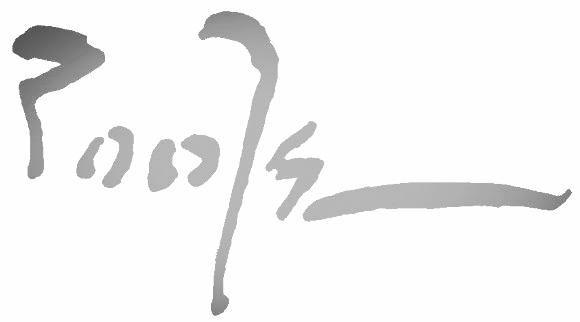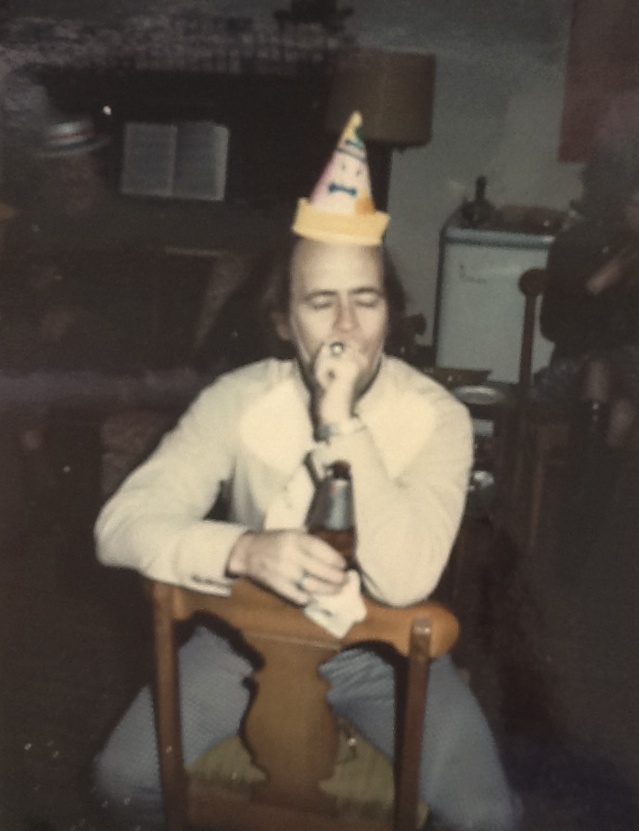"It must have been hard for you, to be this swirly, sensitive, Dionysic creative thing...stuffed into a John Wayne suit."
I said this to Dad at the end of March as he rested in his favorite old recliner; he was beginning to "head for the barn," and was sleeping constantly, but preferred to be in the living room rather than in his bed so that he could feel like part of the action. I often rubbed his temples to soothe him, and our discussions during these periods will always stay with me.
In response to my musing, Dad grunted and grinned, mustering his strength to say, slowly, "honey, you have no idea."
This came to me today, fitting, as it marks the 4 month anniversary of Dad's one-way trip to Happy Mountain. Masks were a recurring theme in Dad's work, and I've been doing a lot of thinking as to why.
Joseph Campbell wrote: “To become—in Jung’s terms—individuated, to live as a released individual, one has to know how and when to put on and to put off the masks of one’s various life roles."
Dad was born in Marlow, Oklahoma and raised in Bradley, Oklahoma, both small farming communities. With his own father out of the picture, Dad's views of what a man should be were fomented by the people around him. They worked hard, went to church, knew how to tell a good joke, protected their families and served their country. Life was hard, but simple by today's modern standards. The community supported each other, and your roots were known by nearly everybody. Honesty, humility and a willingness to help others defined "a good man," the highest compliment. Only a few went on to college, and most stayed in the area all of their lives.
This is still a way of life in Oklahoma, and can produce some of the finest people you'll ever know.
During the late 1940's, Dad stumbled on an art "contest" on the back of a matchbook, advertised by the Art Instruction Schools. He sent in his submission and was accepted.
My Grandmother, a schoolteacher in a one-room school house, somehow scraped together around $300 to enroll him in the course, and he dedicated all of his free time to mastering the techniques sent to him.
A few years later, Dad went to the University of Oklahoma for a degree in art, because, in his words, he had "bailed enough hay." He graduated in 1957, entering the wide and fast world of advertising and suits and society. He moved to Virginia, briefly, to work in advertising, but homesickness got the better of him.
In Oklahoma, Dad was a powerhouse, creating one the state's leading advertising agency at the time, Poole-Hobbes, Inc. He also created the Oklahoma Art Directors' Guild, and some of the finest artists in the nation came to his home. Dad hosted workshops with Fritz Scholder, and we have personal work given to him by Mark English and Bernie Fuchs. More importantly, Dad began to see artists living their lives through their art, and the allure was too great for him to ignore.
When I was around 4 years old, Dad got rid of the suit and crewcut, grew a beard, and bought OJ, his beloved orange Volkswagen camper. He began to study with R.V. "Dick" Goetz, a great painter, instructor and one of Dad's lifelong friends, and he began to live the life of an artist.
This departure was so far from his origins - where his closest friends were still on the farm, struggling with the demands of the land, Dad had an orange VW camper, a turquoise ring and flip flops. He painted naked ladies, went to crazy parties and argued incessantly about reforming politics and religion.
Dad struggled constantly with the man he had been raised to be and the man he was becoming. I think that struggle is what made him truly unique, but it also haunted him. He couldn't embrace the "uppity" world of fine art, and yet he couldn't be satisfied with small town life. So he painted, and painted...and painted.
The O. Gail Poole Collection is Dad's diary of his most intimate thoughts, joys and struggles. I hope to be able to find a place to host a retrospective, as it's extremely powerful to view the images that fueled one man's life. Dad's work goes beyond the personal to represent, in a way, the masks with which we all struggle.
Dad was in the final stages of his cancer on Saturday, April 13. Thanks to his friends, a Comanche elder came that morning to lead the most moving ceremony I have ever witnessed.
The day before, recognizing the signs, I called people from far and wide to come squeeze his hand, and they came. FedEx packages and letters had come pouring in from artists and admirers from the world over, and visits from some of the best people I'll ever know drowned the house in scotch and laughter. I read all of the letters and e-mails to Dad as I held his hand, and I played one of his personally curated CDs on my laptop next to his bed. (Damndest mix of Abba, Renee Fleming, Jesus Christ Superstar!, the Kings Singers, Dave Brubeck, Waylon & Willie, John Lennon and Charlie Poole, but I swear to you he recognized and responded to each one.)
On that day, each chapter of Dad's life was represented by at least one person, if not several, all knowing a side of him that only they could know. I wonder what it must have been like for him, for all of his masks to collide and mingle in such a real way.
Finally, on Saturday afternoon, "The Bradley Boys," the guys he had gone through grade school with, all came to visit Dad. They told stories and EJ, his high school hero and subject of many paintings and sketches, played guitar and sang to him.
At exactly the hour of evening when the sun painted its own masterpiece of uncapturable light, Dad became, as Campbell so eloquently put it, "a released individual," and all of the masks slid away.










